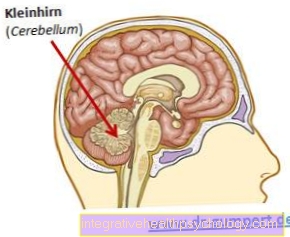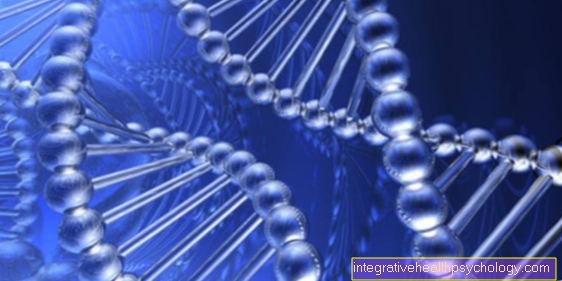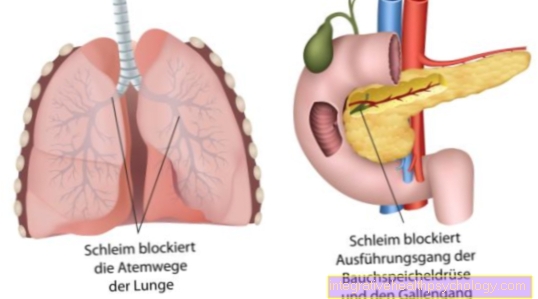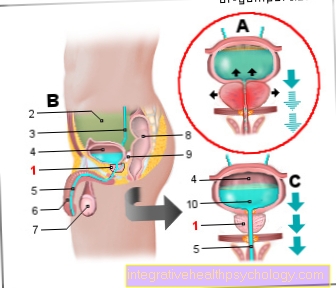Symptoms and diagnosis of glomerulonephritis
Symptoms of Glomerulonephritis
Through the Destruction of the filter system components of the blood composition are filtered out that do not get into the urine with healthy kidney function.
This includes:
- blood (Hematuria)
- Egg whites (Proteinuria)
and - cylinder (Cylindricity).
The breakdown product of the muscle metabolism creatinine, which is used as a functional marker for the filter function, is increased in the blood.Some patients still show high blood pressure (hypertension, the complex of symptoms of protein loss via the urine, too little protein in the blood (hypoproteinemia), increased blood lipids with excretion of fats in the urine (hyperlipidaemia with lipiduria), water retention (edema) and the tendency to form blood clots (Hypercoagulability) is called nephrotic syndrome, and this syndrome often shows up in glomerulonephritis.
Other symptoms of glomerulonephritis can include signs of inflammation, such as an elevated temperature and changes in blood parameters.
These include, for example:
- the multiplication of defense cells (Leukocytosis)
- Increase in acute phase proteins (proteins that increase their initial concentration by more than 25% in the course of inflammation, e.g. the CRP value)
- increased sedimentation rate (ESR).
For more information, see: Flank pain on the right
Diagnosis
If glomerulonephritis is suspected, a detailed anamnesis (medical history) must be taken in addition to the physical examination.
In the next step, in addition to a urine test and an examination of the blood composition, an ultrasound of the kidneys (sonography) is performed. If kidneys of normal size are shown in the ultrasound image, this indicates an acute form. In a longer, chronic form, the kidneys are smaller.
In addition to determining the standard laboratory parameters, specific antibodies are searched for in the blood (or serum). Decreased components of the general defense (complement system) can also be an indication of an immunological form.
A sample of kidney tissue (kidney biopsy) can be used to confirm the diagnosis.




















.jpg)








